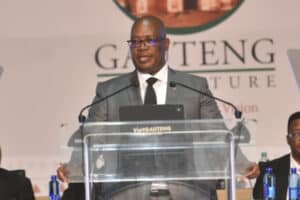Over time, the cost of solar power increases with the inflation rate, while Eskom and municipal tariffs increase exponentially.

The good news that load shedding has now stayed away for more than three months is bad news for the solar industry.
Although households and businesses still have the appetite to free themselves from Eskom, the urgency is gone, and this could impact thousands of solar installers nationwide whose cash flow depends on the one-time payments when they do an installation.
Jonty Sacks, partner at Jaltech, which has installed solar panels on the rooftops of 160 retailers and factories over the past year and sells the power to the businesses on the premises, says the company entered the market about a year ago.
ALSO READ: How to escape electricity costs with solar
It raised about R750 million from retail investors to finance solar power installations. For example, it would enter into an agreement with a supermarket to use its roof space to generate solar power, which the supermarket would then buy from it at a fraction of the Eskom price.
Independent installers install the solar panel system. “We do business with about 60 of them,” says Sacks.
Jaltech owns the installation, and the retailer does not have to worry about the technical aspects and maintenance.
Sacks says retailers who use power mainly during the day see dramatic savings.
The rate can be as little as 95c per kWh, compared to Eskom’s average rates, which can cost them up to R3 per kWh. Municipal tariffs are even higher.
ALSO READ: Trade watchdog imposes 10% duty on solar panel imports to ‘protect local industry’
Over time, the cost of solar power increases with the inflation rate, while Eskom and municipal tariffs increase exponentially. This year, Eskom raised its tariffs by more than 12%, and in its latest tariff application, the power supplier is asking for about 36% more from 1 April next year.
Dramatic drop
Sacks says the demand for their solar product was huge.
“We didn’t have [to] do any marketing. Clients were looking for a solution to load shedding. The marketing budget was zero!”
Jaltech and its installers have already given more than 400 quotes to businesses this year worth R4.1 billion.
ALSO READ: Energy poverty and solar power impact Eskom
However, the rate at which quotes are accepted has dramatically decreased since the reduction in load shedding.
“Of the R4.1 billion in quotes, only 15% have progressed,” says Sacks. “We expect to finalise about half of that in the next four to six weeks.”
He says, judging by experience, it would have been two to three times as much if load shedding had continued.
He says the appetite is still there because it makes financial sense, but it takes longer to close transactions.
This decrease can particularly hit the installers hard, says Sacks. The industry has grown tremendously and employs many people nationwide. Such businesses, however, are very dependent on the cash flow from one-time payments with each installation and will struggle to sustain themselves without a steady flow of projects.
He believes this could lead to a contraction in the solar market.
Ross Mains-Sheard, CEO of Versofy Solar, which supplies solar power to households, also says there has been a significant decrease in orders since Eskom stopped load shedding.
The company makes it possible for households that do not have the capital to pay for solar power upfront to still get it by offering a rent-to-own option.
ALSO READ: ‘We are proceeding with it’: Government will defend nuclear power plan – Ramokgopa
Mains-Sheard says the monthly rental for a solar installation currently costs a little more than, for example, Johannesburg’s City Power electricity cost, but with one tariff increase on the municipal side, this difference could be wiped out.
Although the urgency in the short term has decreased due to the relief from load shedding, and consumers under economic pressure are postponing their decisions, Mains-Sheard says that in the long term, there is still a lot of interest among households to do solar installations.
Load reduction and tariff concerns
Minister of Electricity and Energy Kgosientsho Ramokgopa recently spoke out against local power outages in which power suppliers apply load reduction to protect equipment from overloading.
This impacts the security of supply even in the absence of load shedding, he said.
ALSO READ: SA faces new crisis: Ramokgopa warns Gauteng’s load reduction the ‘tip of the iceberg’
Ramokgopa also addressed the rising cost of electricity and said even lower-middle-class people and civil servants can no longer afford electricity. People must choose between putting bread on the table or electricity, he said.
Ramokgopa and his team are working on a plan to address problems in the electricity distribution industry that can put an end to load reduction and unaffordable tariffs, including the use of solar power.
This article was republished from Moneyweb. Read the original here
Support Local Journalism
Add The Citizen as a Preferred Source on Google and follow us on Google News to see more of our trusted reporting in Google News and Top Stories.






